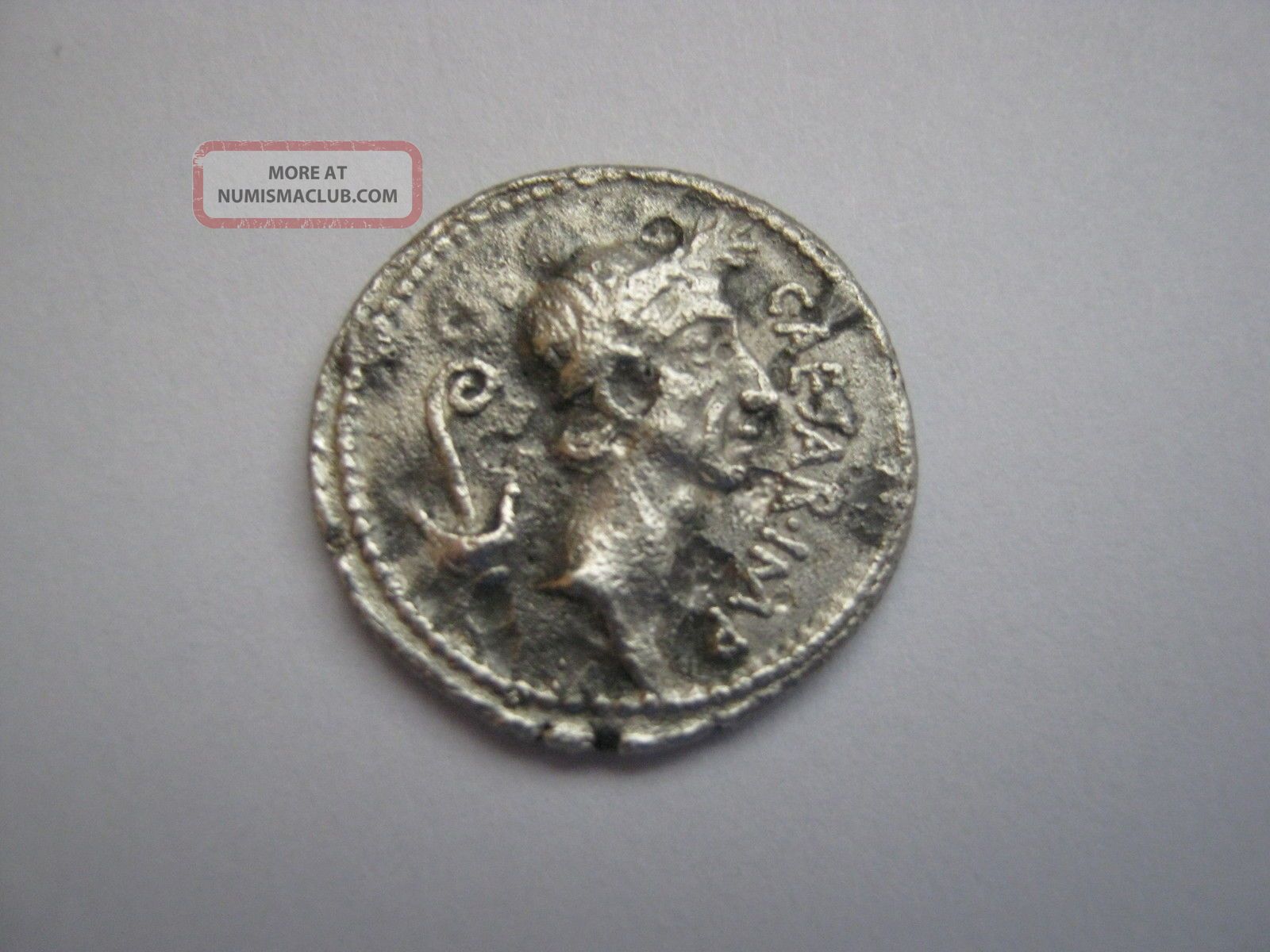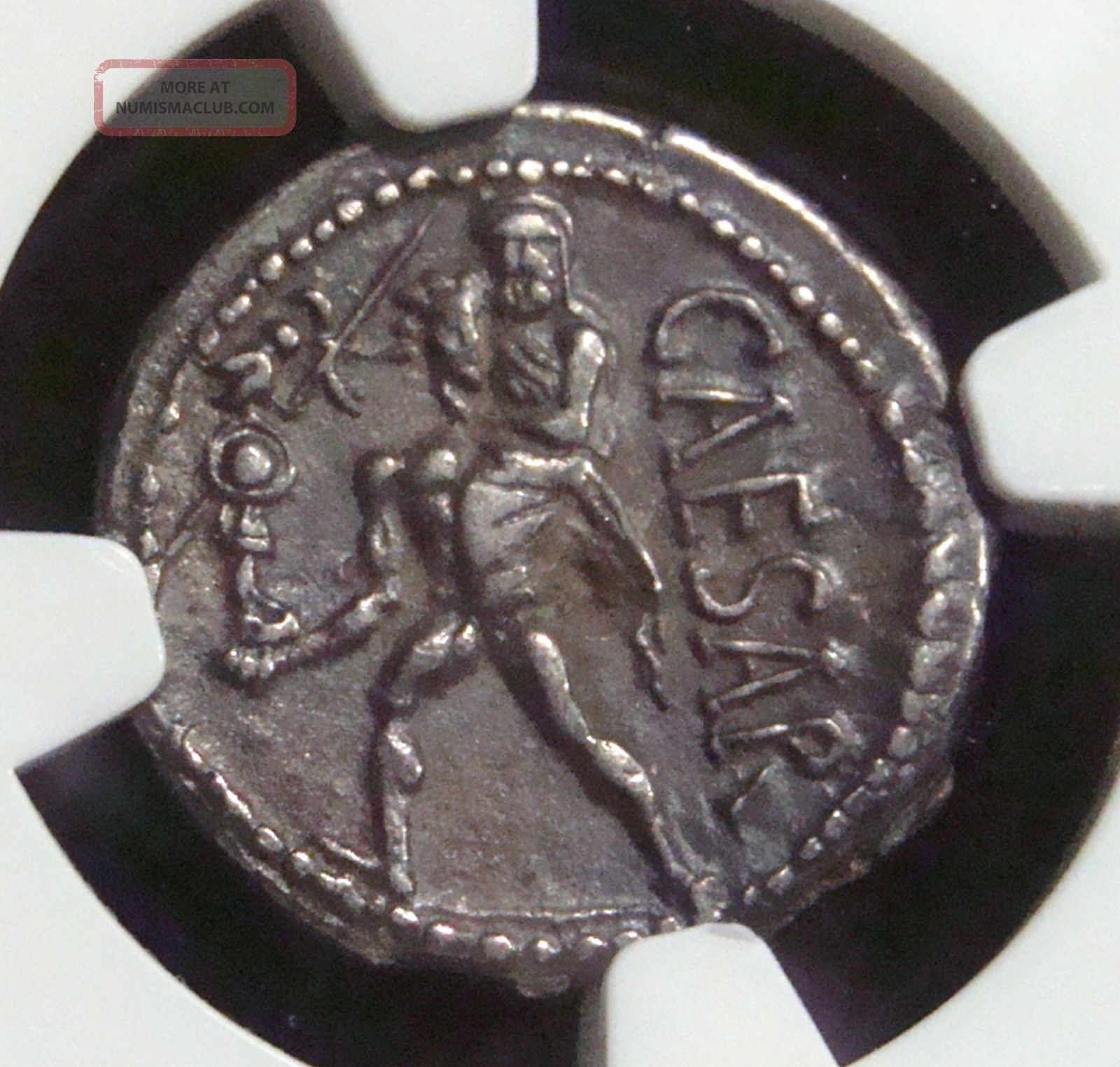


Octavian kept up the effort for at least several years, and he probably even ceremoniously shaved and re-grew it for added effect. In this case, Octavian grew his beard to indicate he mourned Caesar. At the time in Rome, such a visage was unusual, at least for Octavian’s age (beards were more commonly seen on the elderly, or adolescents prior to their first ceremonial shave). The obverse depicts the bare head of Octavian sporting an impressive beard. This propagandistic masterpiece, a denarius struck by Octavian’s travelling mint, circulated in Rome the decade after Caesar’s murder. Presumably, these coins contributed to Octavian’s growing power and his subsequent transformation of Rome’s government into an autocracy. Certainly, Octavian was a master of propaganda, and produced several coins advertising his relationship to Caesar and the latter’s status as a god. Some uncertainty remains with respect to Caesar’s comet and the extent that Octavian exploited it for political gain. Nonetheless, the Senate posthumously deified Julius Caesar, defining a new religion that worshipped – for the first time – one of Rome’s own. While the concept of a divine political leader was not unprecedented in other cultures (e.g., the Egyptian Pharaohs), Octavian’s promotion of Caesar’s divinity was extraordinary for ancient Rome. Not surprisingly, many Romans interpreted the comet’s appearance as proof of their former dictator-for-life’s divinity.Īmong the earliest and most fervent believers was Caesar’s adopted son, Octavian, later known as Augustus. Perhaps one of the five brightest comets ever recorded, it is often referred to as either sidus Iulium (the Julian star) or Caesaris astrum (the star of Caesar). That celestial newcomer reportedly lasted for a week, its luminosity sufficient to be visible at midsummer’s day. Whether serendipity or divine intervention, a bright new star appeared over Rome in 44 BC, coinciding with the festival of Ludi Victoriae Caesaris, the funeral games honoring Julius Caesar.


 0 kommentar(er)
0 kommentar(er)
